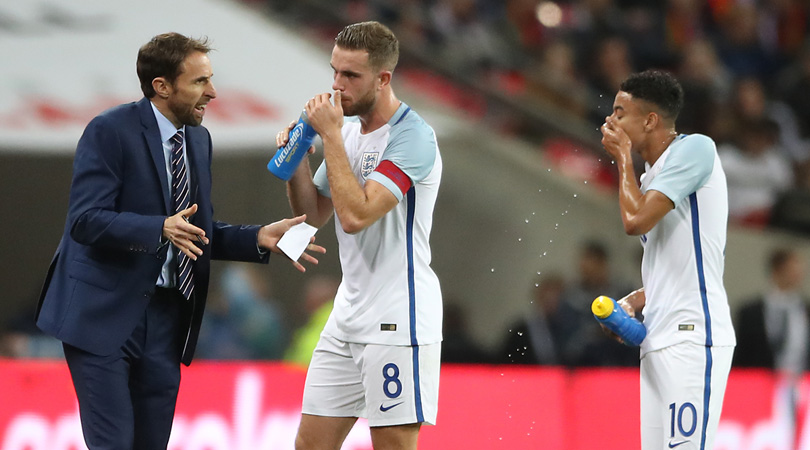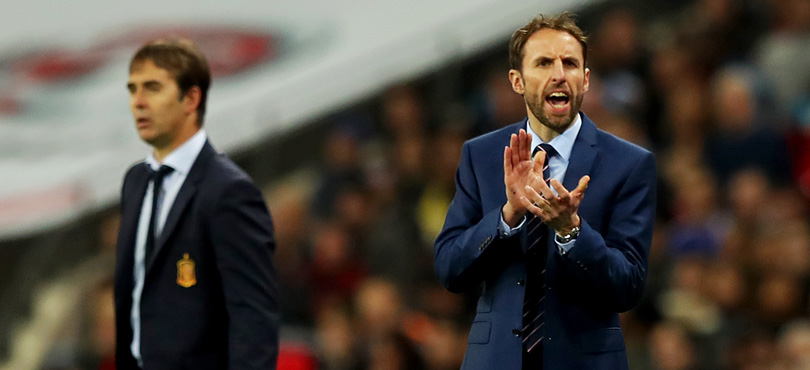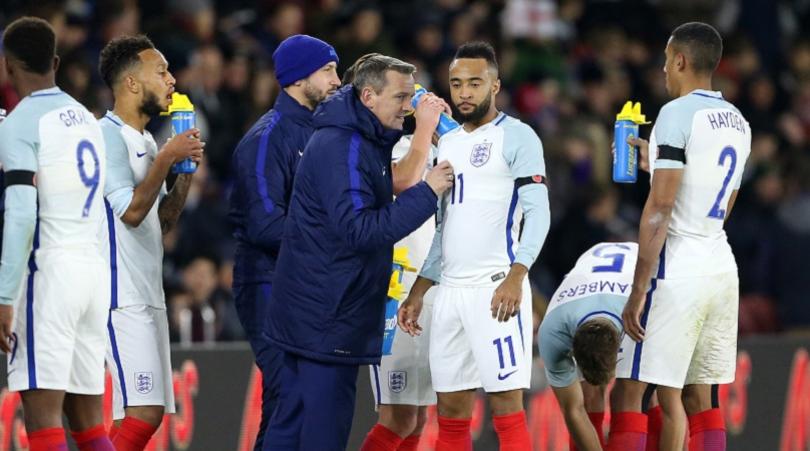Why Gareth Southgate represents more than just a bloke in the dugout for England
Having been entwined in the FA system for over five years, the former Middlesbrough boss is flag-bearer for a new and unified England, writes Seb Stafford-Bloor

So where are England now and what does this all mean?
Those are questions which this country has to get out of the habit of asking. The way to judge the national team is not on a game-by-game basis, but over the course of generation-long cycles. Galling as they may be, even results in international tournaments are more of a distraction than an actual barometer of the Football Association's health.
Gareth Southgate's arrival in the England dugout is probably the truer indicator. Meek and mild fellow though he is, Southgate is a thoroughly modern appointment. Though still suffering judgement for his mis-steps at club level with Middlesbrough, he has spent the last three years with the national U21 team rebuilding his coaching reputation and remodelling himself under the influence of Dan Ashworth, the association's technical director.
One philosophy
While the senior side were busy tripping over themselves in familiar ways, the teams below them were being re-styled. Disfigured by two decades of underperformance, English football has spent the last four years under the cosmetic surgeon's knife and, tentatively, the results are quite pleasing: their age-group teams all conform to a single outlook, prioritising possession and flexibility over more blunt, traditional qualities. Physicality, intensity and passion – whatever those vague terms actually mean – are out, and smarter values have been installed in their place.

Southgate's promotion, then, is an attempt to graft this new promise over the senior side's haggard features. Rather than allowing the senior squad to continue to operate within a vacuum at the top of The FA's flow chart, the intention is clearly to make it a final destination – the place at which all the coaching initiatives and player-development philosophies converge and mature.
The movement is embryonic. Malta were beaten 2-0 at Wembley without anyone really noticing and the goalless draw in Slovenia was curiously reflective of the national, post-Allardyce ennui. Last Friday night, the 3-0 victory against a plucky Scotland masked some jittery defending and structural uncertainty, and offered little assurance over future directions.
Get FourFourTwo Newsletter
The best features, fun and footballing quizzes, straight to your inbox every week.
World Cup qualification depends on goals and points, but public interest does not. To re-engage with their side, the country wants substance – and a friendly against Spain, even one a few years beyond from their imperial stage, was a useful context-giver.
Unexpected upturn
And, in general, it was. England were largely excellent and, up to the 88th minute, had thoroughly deserved their two-goal lead. Frivolous substitutions compromised their rhythm, though, and two late Spanish goals took the spring from the home supporters' step. Still, only a contrarian would deny that, for the majority of the evening, the hosts were unexpectedly dominant.
Rather than allowing the senior squad to continue to operate within a vacuum at the top of The FA's flow chart, the intention is clearly to make it a final destination
While all of England's recent tournament exits can be traced back to individual errors and selection issues, one of their overarching weaknesses has been an inability to translate possession into either goals or momentum. Between Sven-Goran Eriksson's departure and the present day, the side has bounced erratically between opposing states: either they've been incapable of protecting the ball or have been too reluctant to do anything with it.
While Roy Hodgson obviously preached retention, it was generally at the exclusion of any risk or temperament. Aside from the Iceland calamity, their Euro 2016 showing was memorable for its sterility – for sideways passages of play and ineffective dominance. So, if there are shoots of promise peeking through the charred Wembley soil, it's perhaps because that ailment seems to have been cured – or is at least in remission.
England's opening goal owed much to Adam Lallana's vision, but also to the quick change of passing speed which allowed Jamie Vardy to escape beyond Inigo Martinez. Later in the first half, Jesse Lingard would spring Raheem Sterling down the left touchline, with Vardy just failing to connect with the resulting cross.
Again, it was the quick, slick change of gears which created the opportunity: not possession for possession's sake, but smart play with a dose of situational intelligence. High pressing and quick turnovers are in fashion, but Southgate's England – as they will shortly be known – are capable of squeezing the brake pedal too, and of working through simple phases in different parts of the pitch.
England’s upside
Quick, fast, quick, fast; it's not just opportunistic, counter-attacking football, but instead a mildly impressive blend of caution and ambition. It's rather contrived praise but, of course, the bar has been set extremely low. Humbling though it is to admit, seeing this side perform like a modern international football team is novel.
England doubled their lead just after half-time and, again, it was with a knifing through-pass that they were able to inflict the wounds, with Vardy surging beyond the line. The ball was guarded and then recycled carefully across the box, before Jordan Henderson's arcing cross was headed beyond Pepe Reina by the unmarked Leicester forward.

The anatomy of the goal was neatly descriptive of England's overall performance and neatly surmised the twin aspects of their improvement. While the first pass punctured the visiting defence, Spain were initially able to recover ground to block off Vardy's route to goal.
The damage was eventually done by England's composure and by the supporting players who provided additional options. Henderson's final ball was superb and the surrounding attacking movement was similarly excellent. Julen Lopetegui will have been dismayed by the static marking, but it was still a moment of exemplary patience and sharp-yet-methodical precision. England didn't have that craft in France and they haven't been as potent as they were on Tuesday night for some time.
Admittedly, Spain were largely rotten at Wembley. Lopetegui is attempting to guide them through their own transitional period and, on this evidence, he has a task on his hands. The missing names – Diego Costa and Gerard Pique – provided an excuse, but not one which justified the performance or explained how England were able to manufacture so many cutting angles. Theo Walcott should have added a third shortly after coming on and, minutes later, Lingard skipped beyond Reina only to see his shot blocked on the line.
But then the inconvenient finish: Spanish apathy gave way to a spirited flourish. Iago Aspas drove towards the box, blurred his feet and then fired into Tom Heaton's top corner before, deep into stoppage time, Isco produced a neat finish to equalise. It was irritating, but slightly false: Southgate, presumably with the relationships of various Premier League managers in mind, had replaced three of his back five by the time of the first goal and created a voluntary weakness which Spain were able to expose.
Southgate’s future
But while those late goals shouldn't be ignored, nor should the general tone of the evening. Wembley saw a bright, inventive England, a team who – while clearly still flawed – were alive with dexterity. More importantly, it was a senior performance built upon the same formula which the age-group sides have been applying for some time.
That is Southgate's job, and why he finds himself in the position he does. He carries the flag for a footballing philosophy which now runs the length and breadth of the Football Association. Given the back-and-forth nature of the past, and England's maddening tendency to oscillate between contradictory imperatives, that can only be good.
Seb Stafford-Bloor is a football writer at Tifo Football and member of the Football Writers' Association. He was formerly a regularly columnist for the FourFourTwo website, covering all aspects of the game, including tactical analysis, reaction pieces, longer-term trends and critiquing the increasingly shady business of football's financial side and authorities' decision-making.


